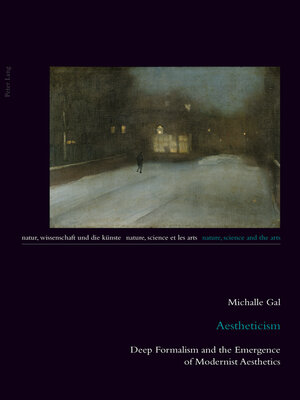Aestheticism
ebook ∣ Deep Formalism and the Emergence of Modernist Aesthetics · Natur, Wissenschaft Und Die Künste / Nature, Science and the Arts / Nature, Science Et Les Arts
By Bernd Nicolai

Sign up to save your library
With an OverDrive account, you can save your favorite libraries for at-a-glance information about availability. Find out more about OverDrive accounts.
Find this title in Libby, the library reading app by OverDrive.



Search for a digital library with this title
Title found at these libraries:
| Library Name | Distance |
|---|---|
| Loading... |
This book offers, for the first time in aesthetics, a comprehensive account of aestheticism of the 19th century as a philosophical theory of its own right. Taking philosophical and art-historical viewpoints, this cross-disciplinary book presents aestheticism as the foundational movement of modernist aesthetics of the 20th century. Emerging in the writings of the foremost aestheticists – Oscar Wilde, Walter Pater, James Whistler, and their formalist successors such as Clive Bell, Roger Fry, and Clement Greenberg – aestheticism offers a uniquely synthetic definition of art. It captures the artwork's relations between form and content, art's independent ontology and autonomy, art's internal completeness, criticism, immunity to recruitment, the uniqueness of each medium, and musicality, as well as the logical-theoretical affiliation of art for art's sake to epistemology, ethics and philosophy of language.
Those are used by Michalle Gal to formulate a definition of art in terms of a theory of Deep Formalism, setting aestheticism, which aspires to preserve the artistic medium, as a critique of the current linguistic-conceptual aesthetics that developed after the linguistic turn of aesthetics.
Those are used by Michalle Gal to formulate a definition of art in terms of a theory of Deep Formalism, setting aestheticism, which aspires to preserve the artistic medium, as a critique of the current linguistic-conceptual aesthetics that developed after the linguistic turn of aesthetics.







